Set up L2TP/IPSec on ChromeOS
L2TP/IPSec is a widely used legacy VPN Protocol and it supports most operating systems. It is very easy to set up directly on the OS and doesn’t require any additional software installation.
- Operating System-
- An active Plan/Service on
- Unrestricted Internet-
L2TP/IPSec uses L2TP/IPSec protocol. Find your L2TP/IPSec Credentials from your Service Page.
Further steps shows how to get credentials for:
A. Dedicated Proxies B. VPN
Login to your account and find the IP address/Service you want to use.

Click on the Download VPN Credentials button and select L2TP/IPSec.

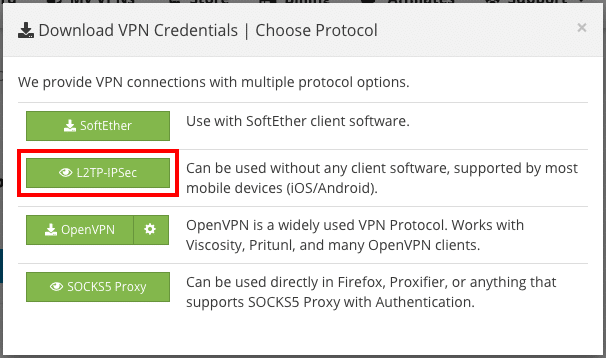
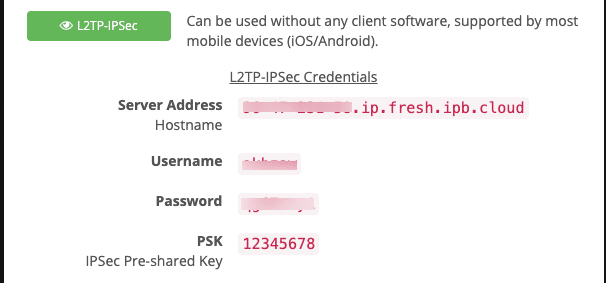
These are your VPN Credentials.
Access your VPN Service here. Click on the Manage button.
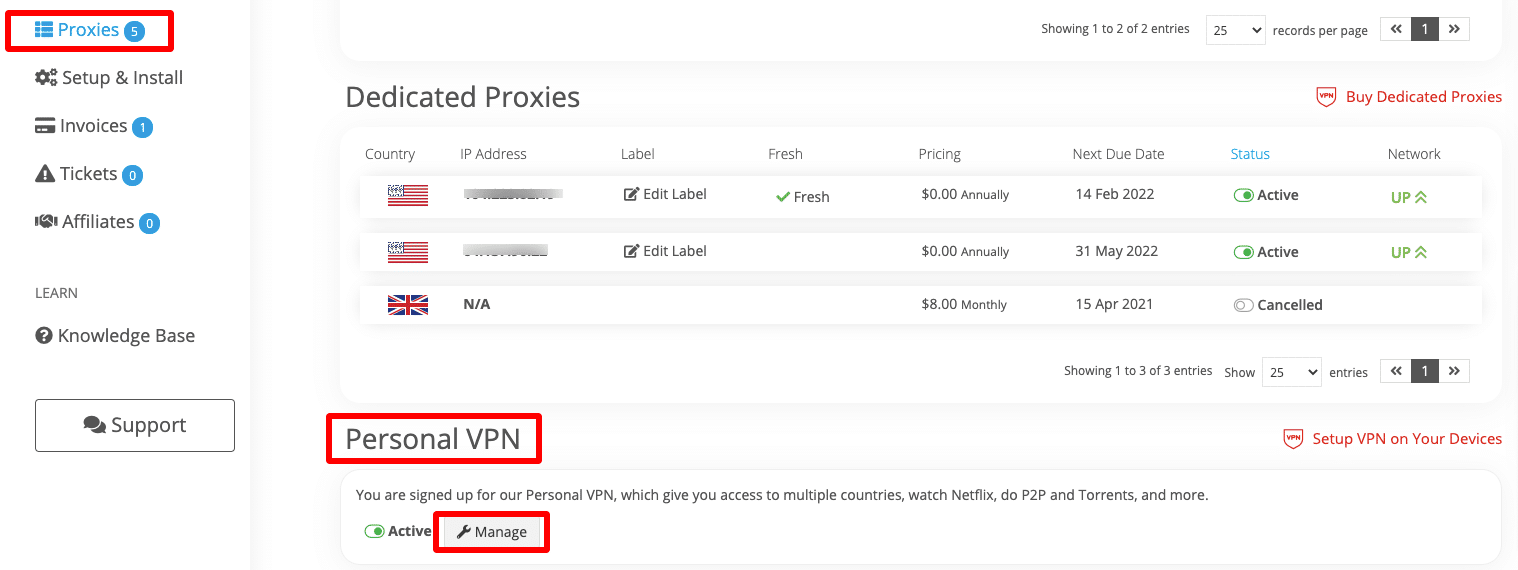
Click on the Download VPN Credentials button and select L2TP/IPSec.
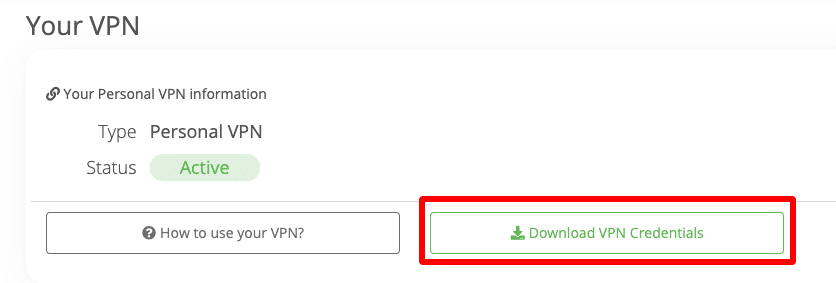
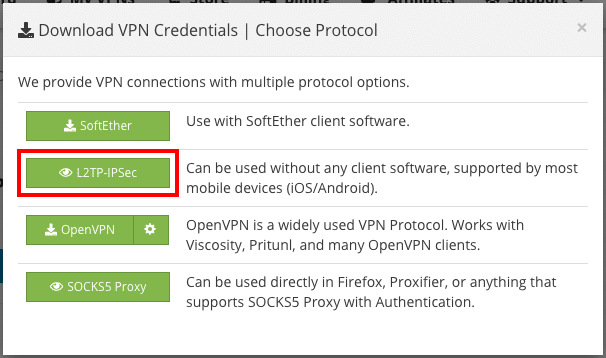
Select a location.
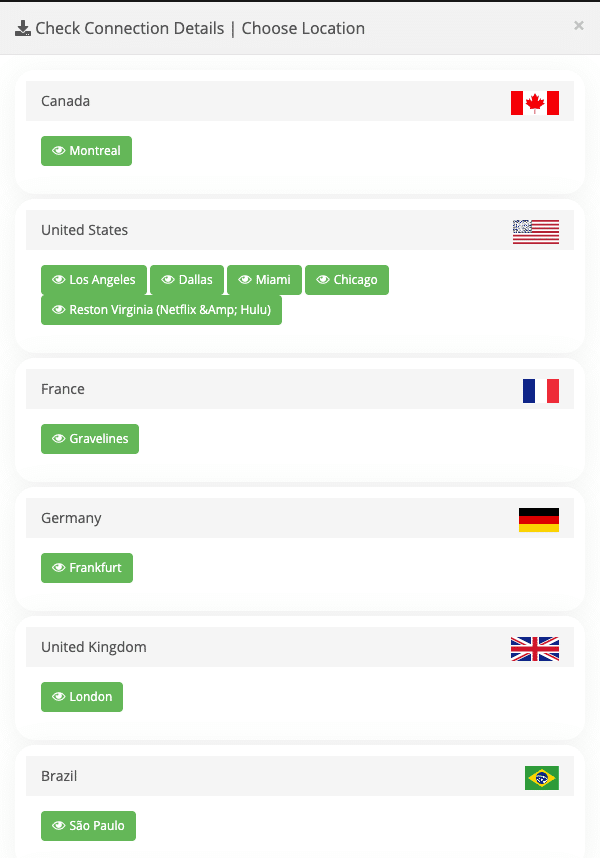
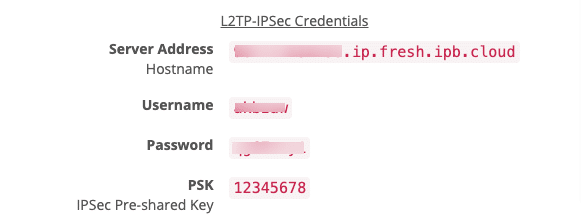
These are your VPN Credentials.
Click the Account icon on the bottom left corner of the screen and click on the Settings icon as shown below.

Under the Network options, click on the Add Connection and then click on the Add OpenVPN/L2TP.
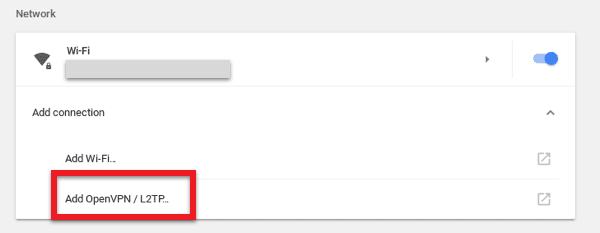
In the dialog box that opens,
- Give a friendly
- Set
- Copy
- Leave other fields empty
- EnableSave identity and password
Recheck if all the details are filled up correctly and then click on the Connect button.
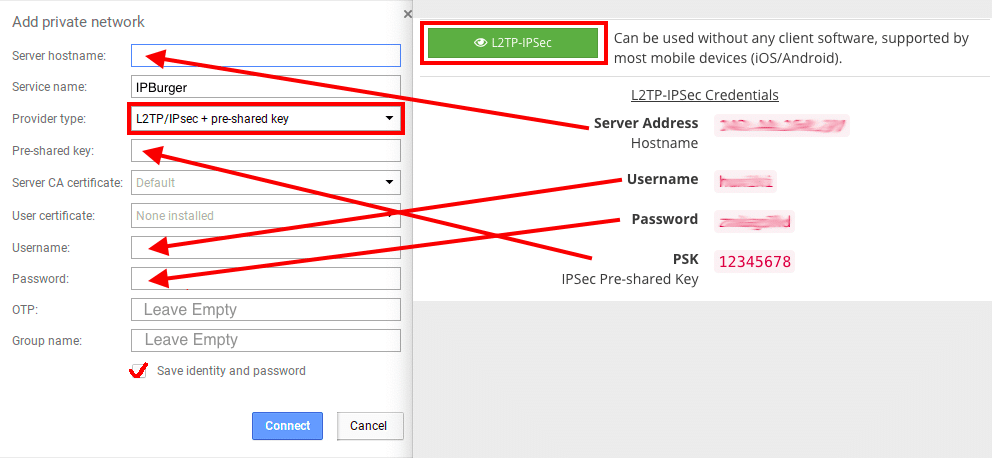
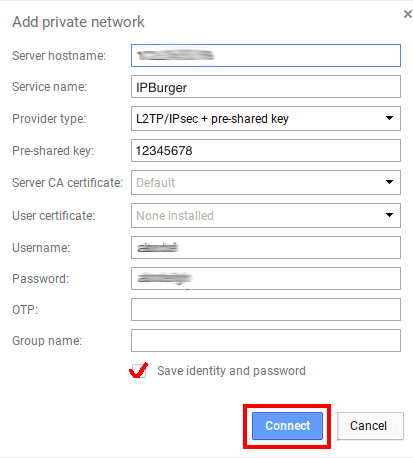
Now you are connected to IPBurger VPN.
If you are having issues connecting, please contact our Support, we are happy to help!
Session ID works to provide you the same IP address for a specified time. At times, you may need to change the IP by yourself before the session time expires. This can be done by changing the session ID on your browser extension.
Go to the browser where you configured the extension and click on the extension icon.

On the Menu dropdown list, click on ‘Settings’.
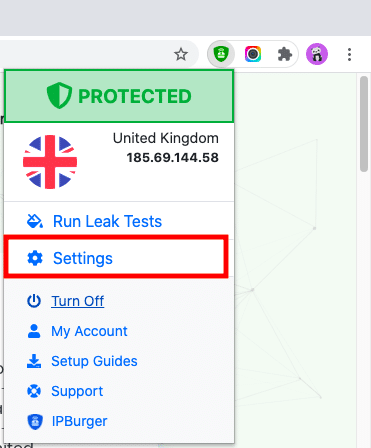
Once the extension setup opens up, click on the RE-CONFIGURE button.
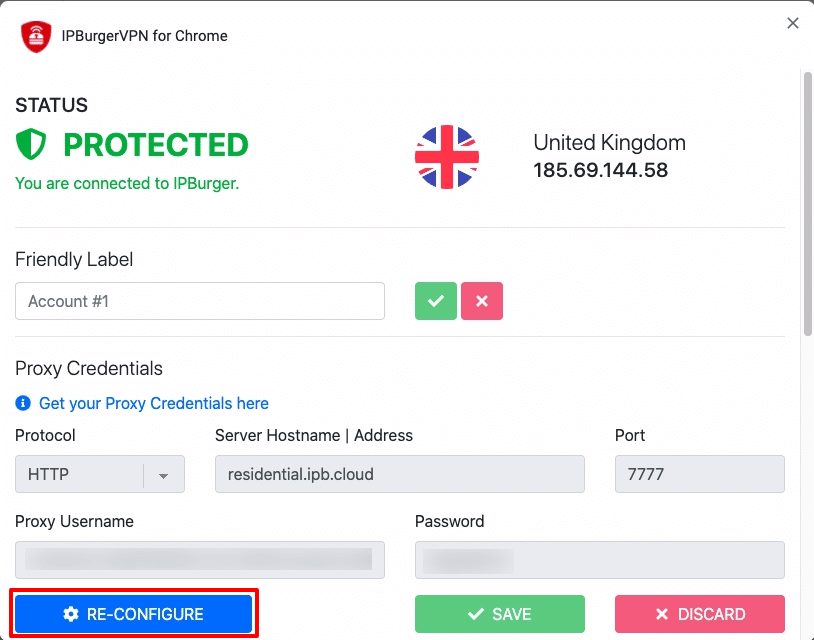
Now, you will be able to edit your proxy username. The five-letter code after the “sessid” is the session ID. You can replace this code with any random combination of five letters like “abcde” or “deger” or “werew” or anything else (without the quotes).
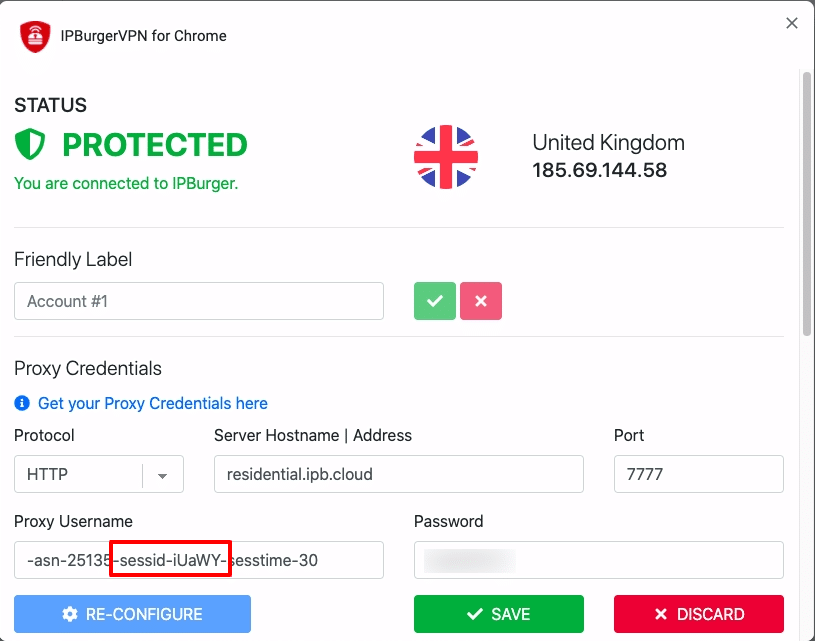
Once done, it should look like the screenshot below. You can then click on the Save button.

You will then be asked to restart your browser. Please note that the process to restart Chrome and Firefox is different as will be mentioned in the notice. The changes will take effect only after you restart the browser.

For any queries, feel free to reach out to our Support, we are happy to help!
Kill Switch blocks you from exposing your Real IP Address, if the VPN Connection ever drops.
We currently don’t have a kill switch for ChromeOS.
Please follow:
For any queries, feel free to reach out to our Support, we are happy to help!